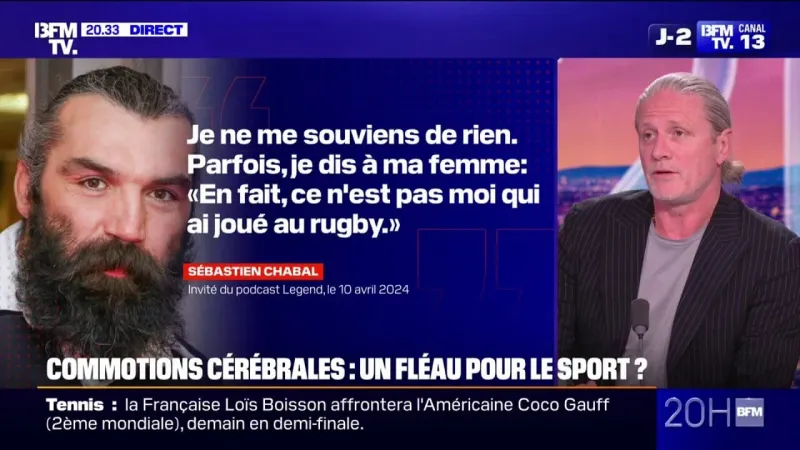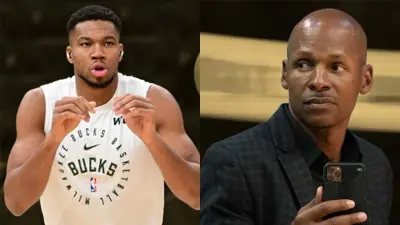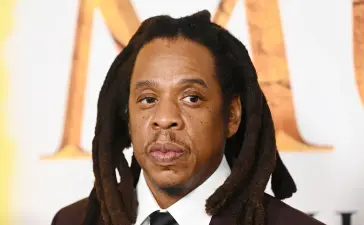Emmanuel Petit: Football Fury and Concerns Over Concussions?

Emmanuel Petit, a former World Cup champion and a man known for his outspoken nature, has recently found himself embroiled in several controversies. His candid, and sometimes controversial, opinions on Ligue 1 and the UNFP awards have ignited heated debate amongst fans and pundits alike. His pointed refusal to acknowledge Adi Hütter's nomination for manager of the year, coupled with his emphatic endorsement of Roberto De Zerbi's achievements with Olympique de Marseille, exemplifies his unwavering belief in recognizing true merit, even if it means challenging established norms.
Petit's criticism extended beyond a simple disagreement; he meticulously dissected Hütter's season, highlighting specific tactical shortcomings and a perceived lack of overall impact on his team's performance. This level of detail, often absent from the more generalized critiques common in football commentary, showcased a deep understanding of the game and a commitment to analytical rigor. His praise for De Zerbi, on the other hand, was not simply effusive; he provided concrete examples of the Italian coach's tactical innovations and their demonstrable effect on OM's improved results.
However, Petit's outspokenness extends far beyond the tactical nuances of professional football. He's become a vocal advocate for improved concussion management in sports, raising serious concerns about the long-term health implications for athletes. His passionate pleas for stricter regulations and increased research funding underscore a commitment to athlete well-being that goes beyond the immediate spectacle of the game. He argues that the current approach is woefully inadequate, citing the lack of standardized protocols for diagnosing and treating concussions, a significant gap that puts athletes at unnecessary risk.
The former Arsenal midfielder doesn't shy away from highlighting the often-overlooked long-term consequences of repeated head trauma. He paints a stark picture of the potential for chronic traumatic encephalopathy (CTE) and other debilitating neurological conditions, urging governing bodies and medical professionals to prioritize research and preventative measures. He uses the example of retired players struggling with memory loss, cognitive impairment, and other debilitating symptoms to illustrate the urgency of the situation and the need for immediate action. His calls for more robust research aren't merely rhetoric; he advocates for specific initiatives such as independent research programs, improved diagnostic tools, and mandatory concussion protocols across all levels of competition.
Petit’s concerns resonate deeply within the broader context of increasing awareness surrounding the impact of head injuries in contact sports. Recent studies have shed light on the long-term effects of concussions, highlighting the need for a more proactive approach to player safety. His outspoken stance, therefore, serves not only as a criticism of current practices but also as a call to action for a complete overhaul of concussion protocols, emphasizing a shift towards a preventative approach focused on education, improved diagnostic tools and long-term athlete monitoring. This multifaceted approach, he argues, is crucial for mitigating the risk and improving the long-term health outcomes for athletes at all levels.
Furthermore, Petit's advocacy extends beyond just calling for stricter rules. He champions the importance of education, not only for athletes but also for coaches, medical staff, and even fans. He believes that a heightened understanding of the seriousness of concussions, their long-term consequences, and the importance of proper management is crucial for creating a safer environment for all participants in sports. He envisions a future where early identification and management of concussions becomes commonplace, allowing for quicker recovery and a reduction in the risk of long-term neurological damage.
In conclusion, Emmanuel Petit’s recent pronouncements, though controversial in some aspects, highlight a deeply principled stance on both the immediate and long-term health of athletes. His criticism of the current system, combined with his impassioned pleas for reform, demonstrate a commitment to creating a fairer and safer sporting environment. While his opinions on Ligue 1 may spark debate, his advocacy for concussion awareness speaks volumes about his dedication to the well-being of athletes beyond the glare of the spotlight.
Related articles

NBA: Pacers Lead Finals After Thunder Win; Giannis Antetokounmpo Trade Rumors Swirl
Read more
Romain Bardet Retires from Professional Cycling After Critérium du Dauphiné
Read more